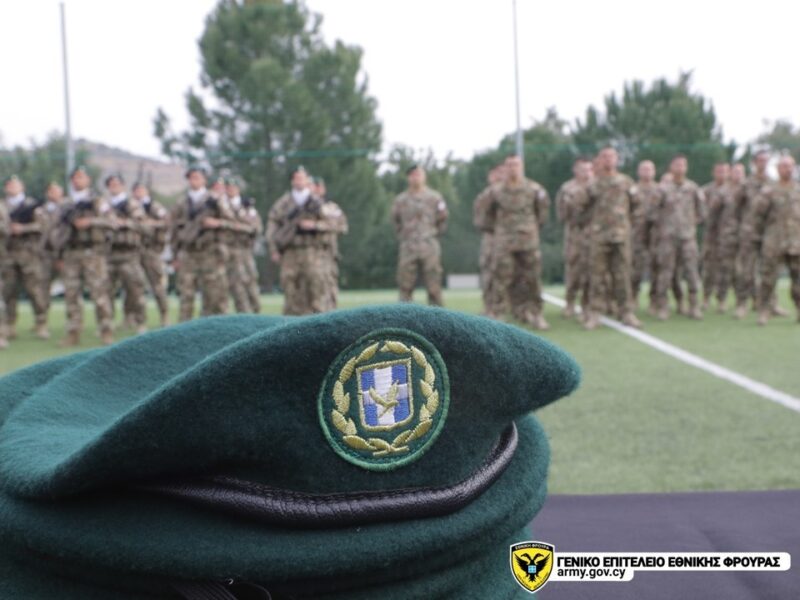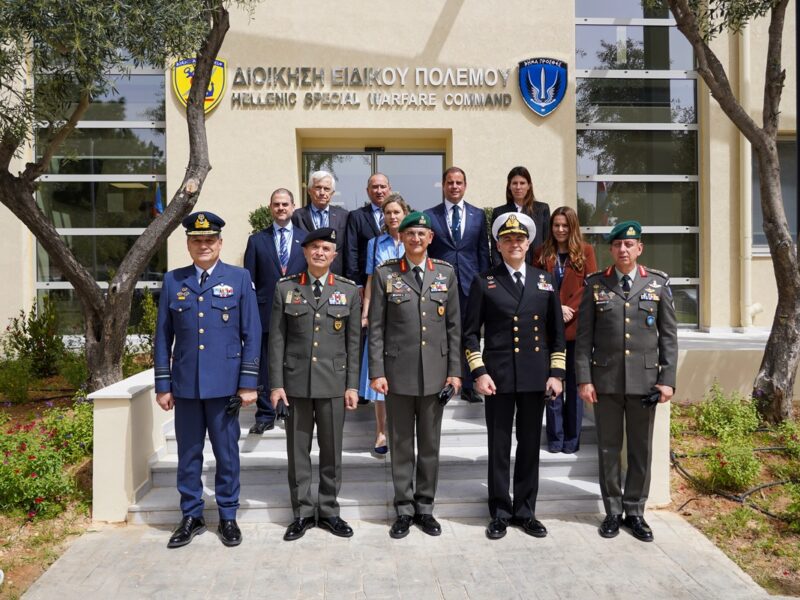There is an authoritarian system, totalitarian. Now, I answer those who wonder why Tayyip Erdoğan doesn’t talk to Sisi, because there are mediators who come here sometimes, but I will never talk to someone like him” said Erdoğan in 2019 while leaving the official dinner he hosted that same year the then American President Donald Trump at the UN because the Egyptian President Al Sisi was sitting at the American President’s table.
It has taken nine years since Al-Sisi took charge of his country’s fortunes by toppling President Morsi, a close friend of Erdogan’s and leader of the Muslim Brotherhood, during which time harsh characterizations have been exchanged between the two leaders to shake hands in opening ceremony of the World Cup in Qatar. And of course it wasn’t any other coincidence that in the photo that was released it is the emir of Qatar who with outstretched hands acted as the “consul”.
Besides, Qatar has persuasion in both countries as Mr. Erdogan sees in the Emir his hope of rescuing the Turkish economy when the need arises with an injection of cash, while Al-Sisi, following the example of the other Arabs who normalized relations with Doha, is trying and he to benefit having attracted almost 3.5 billion dollars of Qatari investments in the last quarter.
Both sides, with statements by Erdogan and the representative of the Egyptian Presidency, express the hope that this handshake will pave the way for talks to improve relations
It was only two weeks ago that the Egyptian Foreign Minister S. Soukry announced the cessation of contacts between the two countries (two rounds of talks had taken place the previous year) on the occasion of Turkey’s policy in Libya.
But now it seems that a window is opening with a Summit decision, for the resumption of these talks which of course have to face many obstacles.
Because in these years a political enmity developed between the two countries, with toxic accusations thrown from both sides but also with the development of competition in regional conflicts mainly in Libya, but also in Syria, while Egypt views with great suspicion Ankara’s attempt to expand its influence in the Arab World, North and Central Africa.
As for the Muslim Brotherhood, it is clear that Ankara is taking measures to limit them in Turkey in order to appease President Sisi, but it has not abandoned them.
Mr. Erdoğan has recently shown himself to be ready for major antics, as he did with the UAE, S.Arabia and Israel, and the toughest opponent remained, the Egyptian president.
The normalization of Israel’s relations with Arab countries with the Abraham agreements, the restoration of S.Arabia, the UAE’s relations with Qatar created a new climate of “reconciliation” and calming the conflicts that threatened to destabilize the most flammable region of the planet and in which a significant part of the wealth-producing resources for the world economy is concentrated. This process is being done under the blessings of the Americans and is reminiscent of the earlier American plan for an expanded cooperation in the region centered on Turkey, Israel, Egypt and the Gulf countries.
Turkish-Egyptian relations are certainly not going to be normalized overnight, as there is still a long way to go, but the basis for rapprochement is being created, as everything shows.
Throughout the previous period, Athens has been engaged in a race to ensure that this process of normalizing Turkey’s relations with the UAE, Saudi Arabia, Israel and Egypt will not be at the expense of the strategic relations that these relations have developed with the Hellas.
But there is a peculiar situation as Greece’s relations with these countries were founded and strengthened precisely on the basis of their hostility and rivalry with Turkey. Without forming an alliance against Turkey, they had a clear orientation to create a strong counterweight in the effort to strengthen Ankara’s influence in the Arab World in the Eastern Mediterranean and North Africa.
Without having disappeared all the reasons that brought these countries towards Turkey, it is obvious that a different climate is being created, in which Greek foreign policy will now have to move. A mission not so easy, but Greece has “diplomatic tools” in its hands.
With Egypt there is a special situation as it is a country with which Greece has a border and in fact in an area where Turkey disputes Greek sovereign rights
The Greco-Egyptian, although it was done at great cost, constitutes an important wedge in Turkey’s aspirations as it overlaps the Turko-Libyan. Of course, there remains a large area that has been left out of demarcation East of the 28th Meridian as the Egyptians wish to keep it pending in order not to come into direct conflict with Turkey but also because according to the Turkish logic they would detach a large piece of the Greek continental shelf.
Cairo, which will hardly come to an agreement with Turkey on the issue of Libya, on the contrary has found an agreement with Greece (at least with the Minister of Foreign Affairs N. Dendias) in rejecting the extra-jurisdictional actions and choices of the interim government Dbeiba and support of Eastern Libya.
The military relations between Greece and Egypt have gained depth and will hardly be disturbed by the rapprochement with Turkey, just like the energy cooperation, as the electrical interconnection of Europe with Africa, through the cable that will connect Greece with Egypt, is a project of the future. Also, Egypt is not going to accept Turkey keeping Libya in its sphere of influence, as this will leave a perpetually open wound in its soft underbelly…
In this environment, it is particularly positive that today in Cairo the Minister of Defense N. Panagiotopoulos is expected to sign with his Egyptian counterpart the “Memorandum of Understanding on Cooperation in the Aeronautical and Maritime Search and Rescue Sectors” which essentially constitutes an Agreement on the areas of responsibility Search and Rescue Region (Search and Rescue Region-SRR).
The IMO requires bilateral agreements to define the Search and Rescue area and the practice is for areas of responsibility at sea to coincide with each country’s FIR. Turkey systematically disputes the Greek SAR areas of responsibility and has recently illegally and arbitrarily expanded its own area of responsibility to include a significant portion of both the Aegean and Mediterranean areas of the Greek FIR, so that this area coincides with Turkey’s long-standing sovereign claims rights of the country and to trap the Greek islands in zones of operational competence of Turkey. Turkey had even officially contested the Agreement that Greece and Cyprus had concluded on SAR areas of responsibility. The Agreement with Egypt strengthens the Greek position but does not prevent Turkey from asserting its claims.
Athens will also offer the Egyptian side an “Agreement on the Employment of Seasonal Workers in the Agricultural Sector” which is of particular importance to Cairo.
The game now in the Eastern Mediterranean is becoming more complicated and more difficult and it is a big challenge for Greece to stay “alive” in this game with strong positions and allies.


